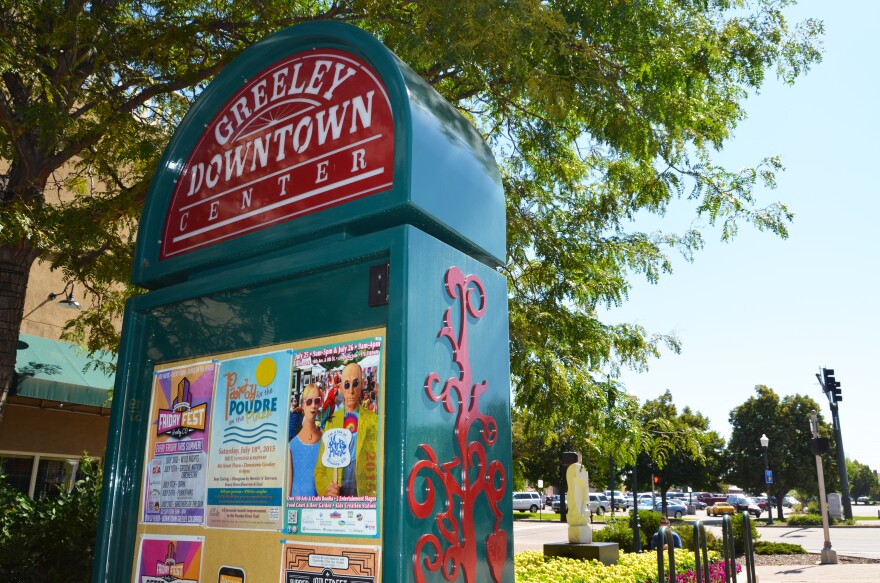Weld County leaders on Friday encouraged businesses of all types, from local restaurants to mom-and-pop retail shops, to reopen "whenever they feel comfortable" after Colorado's stay-at-home order expires next week, contradicting calls from state officials for a more selective reopening process over the next month.
In a joint statement, the county's five-member Board of Commissioners said it would leave the decision to reopen up to individual business owners. The county also released a set of best practices, including limiting indoor group sizes to 10 people or fewer.
"We've made a decision to not pick winners and losers," Commissioner Mike Freeman told KUNC. "We're saying that if you follow these guidelines, then open your business and if you're a consumer and you feel safe going into a store, go ahead."
The county's message appears to be at odds with the state's reopening guidelines released by Gov. Jared Polis' administration this week. The "safer-at-home" policy allows certain types of businesses to reopen in a limited capacity starting April 27.
Life won't just flip back to normal starting on April 27. Here are some of the forthcoming guidelines that @GovofCO presented as we shift to the second level of physical distancing, #SaferAtHome. #DoingMyPartCO pic.twitter.com/9cehVfsYdC
— Colorado Department of Public Health & Environment (@CDPHE) April 22, 2020
In a press conference Friday afternoon, Polis called the commissioners' message that all types of businesses reopen potentially "dangerous" and "not allowed."
"They do not have any kind of unilateral ability to jeopardize the health of residents of Weld County," Polis said. "As governor, I'll take whatever steps necessary to protect residents."
Under the governor's new "safer-at-home" guidelines, counties can relax their business restrictions more than the state. But to do so, they first need to demonstrate two straight weeks of a declining COVID-19 infection rate.
Both Eagle and Mesa counties have successfully submitted variance applications to the state, Polis said. But according to Weld County's own COVID-19 case data, it does not meet the state's threshold.
In his press conference Friday, Polis said he still welcomed a variance request from Weld.
"We want to work with the commissioners," Polis said. "We don't want to participate in political games. We want to have a thoughtful dialogue."
But Commissioner Mike Freeman told KUNC the county would not be requesting a variance.
"We are relying on the Weld County Department of Health and Environment to make the determinations and guidance of what makes sense in Weld County," he said.
The commissioners' message to local businesses also came as cities within the county appeared to side with the state's "safer-at-home" strategy. Greeley's mayor said Friday the city would be extending the public closure of most city facilities until June 2.
"It's imperative that everyone understand the preventative measures and 'safer at home' guidelines are intended to help our state recover in a way that is measured and allows for the best outcome," Mayor John Gates said in a statement.
Other counties, including Denver, Boulder and Jefferson, have extended their local stay-at-home orders until at least May 8. Larimer County said in a statement it would more or less allow business reopenings along the state's safer-at-home timeline.
Weld County has one of the state's highest recorded per capita death rates from COVID-19. As of Friday, the county had confirmed at least 1,339 cases of the disease and 82 deaths. The total population is roughly 320,000.
The county has seen several high-profile outbreaks over the past several weeks, including dozens of cases at the Greeley JBS meatpacking plant and a cluster of deaths at the Centennial Healthcare Center.
The state's lockdown measures have helped slow the spread of the coronavirus overall, but not without severe economic hardship for communities in Weld County and across the state.
As of mid-April, nearly one in every 10 workers in Colorado has filed for unemployment, according to state labor department data.






